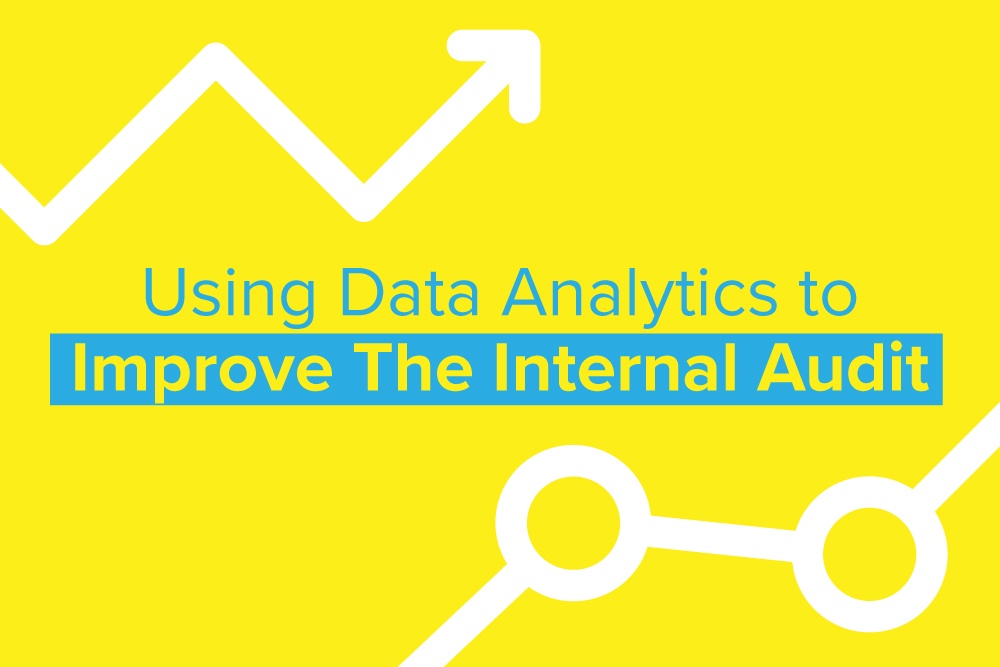It’s a data-driven world, and we’re all just trying to live in it. Information seeps in from every cracked window and door, inundating us with facts and figures that sometimes are useful but usually just make eyes glaze over and thoughts drift to our happy place. You see, as powerful as data is at providing hidden insights from even the most mundane of sources, particularly when coupled with technology, it’s only as illuminating as it is useful.
And that, our friends, is what makes data analytics such a potent tool for the internal audit. It’s precise and relentless in its pursuit of a deeper meaning to all those line items buried in financials. Granted, employing analytics in an internal audit isn’t a particularly novel concept, having been kicked around for decades at this point. However, now that’s it’s being driven by the most prescient of technologies, it’s finally found its true calling in the internal audit space, and for those that know how to drive that particularly dynamic car, the world is their financial oyster.
As you might have guessed, Embark is especially skilled at driving that car. That, of course, provides us a unique perspective on the benefits of data analytics, how it’s best leveraged during an internal audit, and what its omniscient, ever-vigilant qualities mean for the ongoing improvement of an organization’s systems and processes. So grab a healthy snack, a refreshing beverage of your choice, and join us for a brief tour of what data analytics brings to the internal audit table.
Applications and Uses
Data analytics is obviously a wide-reaching term that encompasses many different uses, even when narrowing it to internal audit applications. For that reason, and because Embark doesn’t want your retinas to fry, we’re going to summarize the many, many, many uses data analytics provides for the internal audit.
Compliance
- Evaluate all transactions on an immediate basis
- Identify anomalies in billing data, reveal trends before they spread
- Continually assess regulatory requirements
- Identify unreliable, inconsistent data and constantly monitor data system integrity
Fraud Detection and Risk Assessment
- Identify areas particularly susceptible to fraud and assess necessary controls
- Identify in-house sources of fraud as well as those across supply chains and vendor relationships
- Reveal anomalies within data sets that can quickly pose risk to company finances and brand
- Investigate instances of asset misappropriation
Operational Performance
- Isolate key operating metrics
- Identify redundancies in transaction systems and payments
- Perform cash flow and inventory analysis based on immediate data
- Identify key performance and risk indicators across all business lines to spot potential issues
Internal Controls
- Continually gauge continuity plans based on updated information
- Detect and correct account reconciliations
- Monitor organizational codes of conduct and access controls
- Perform user access analysis
- Assess control performance
- Identify weaknesses or failures in controls
As we said, data analytics lends significant benefits across the entire spectrum of internal audit processes. While Embark recommends dipping your toe into the data analytics water before diving into the deep end, every organization, no matter the size or industry, stands to gain from its insights.
However, referencing our original thesis -- data is only as enlightening as it is useful -- while 63% of North American companies already use data analytics in some capacity for their internal audit procedures, only 28% consider the data driving the functions as high quality. This fact, of course, speaks of the necessity to implement proper internal processes, controls, and systems to regulate the data and maximize its utility. Nudge, nudge -- Embark is particularly adept with such necessities.
Benefits of Data Analytics in the Internal Audit
Aside from the numerous applications driven by data analytics, a results-oriented perspective reveals the many benefits realized after successful implementation, including the accompanying processes and systems needed to draw the most impactful insights from the tools.
Once everything is running like a well-oiled machine, company’s stand to enjoy significant savings in time, cost, and resources. Simply put, after proper implementation, the same audits can be completed faster, cheaper, and with more precision, particularly when automating previously laborious and consuming processes and procedures.
Just as importantly, internal audits become a far more revealing window into a company’s operations, including everything from controls and compliance to data validation and risk assessment. Even better, those revelations grow on each other, making each subsequent audit even more illuminating as the audit process itself -- as well as reporting and service delivery -- continually improve with time and repetition.
Get the Ball Rolling
Whether deciding on the use of data analytics for an organization or an overarching growth strategy, sound decision-making is always rooted in an organized, well-informed approach. Start with a vision and lay out a roadmap for your implementation, including specific goals and timelines to keep you on track. Any cut corners or hurried choices could inhibit the benefits a company derives from data analytics and, thus, minimize its lasting impact. The competition will inevitably rely on the technology to improve their own performance so a haphazard, ill-conceived strategy could have the very same effect as not embracing data analytics at all. Consider yourself warned.
Of course, there’s an easy solution to such a dilemma. Given Embark’s significant experience and expertise on data analytics, you can rely on our sage advice and ability to dig in and join you on the frontlines to help identify the best solutions for you, improve your processes, and implement the solutions. Easy, peasy, lemon squeezy. With Embark’s skillful hand in every area of digital finance, you’ll never have to walk the data analytics road alone. And, yes, that sounds like lyrics from a truly bizarre country song.










